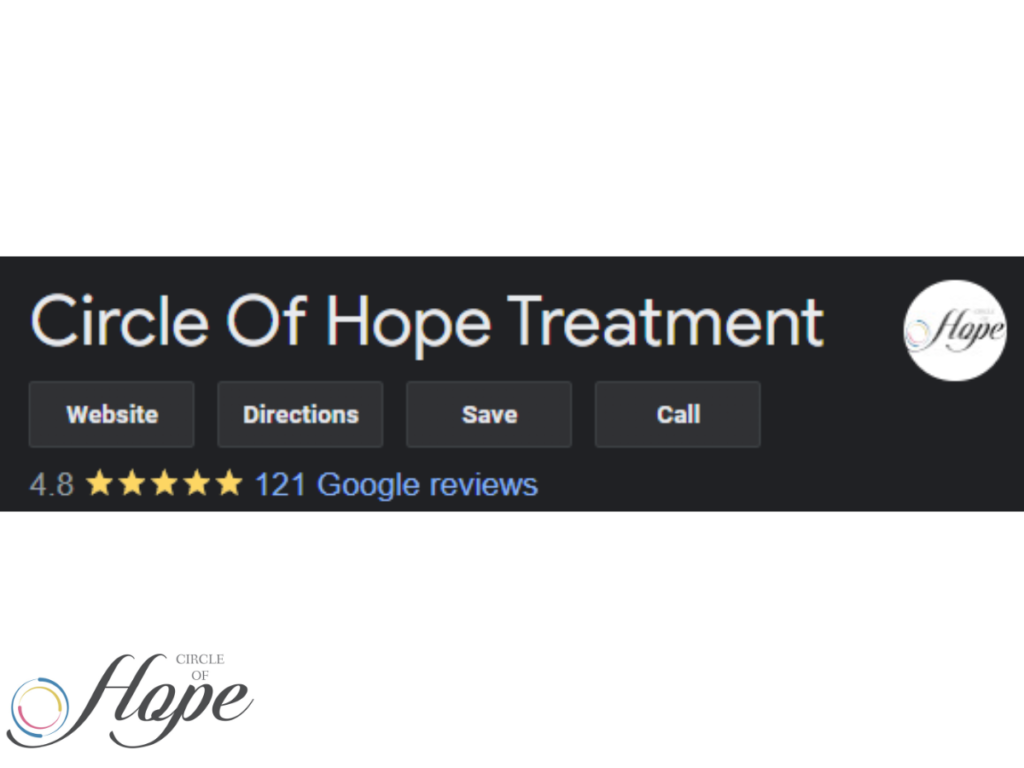When you or a loved one is battling addiction, knowing where to turn for assistance may be tough. It’s possible that deciding who to talk to or where to go might be a difficult decision. That’s why we’ve created a list of questions you can ask any rehabilitation facility to assist you in making the best choice for your particular situation.
There are many rehab centers available, but not all of them are created equal. It is important to do your research before choosing a rehab center.
Choosing a Rehab: The Right Questions Can Make All The Difference
Finding the right rehab centers when we are struggling with drug and alcohol abuse can be challenging. With the variety of services provided, level of treatment available, it’s easy to be overwhelmed. It can help to prepare with at least ‘5 Questions To Ask Rehab Centers,’ if not more.
That is why it’s crucial to understand which questions to ask when we are in the process of deciding. The easier it is for you to decide where to go if you are more familiar with the alternatives available and what they imply.
Please keep reading to learn how to establish a baseline for what questions you should ask while looking for a rehabilitation facility.
5 questions to ask rehab centers
1. Is Insurance Accepted Here?
This is the most pivotal question that needs to be asked. Does the rehab center accept the health insurance that the patient has to offer or are they less flexible on these matters? There are a number of rehab facilities out there that are not going to work with the insurance provider that the patient has to offer. Others will only accept certain kinds of insurance. Getting clarity on where each venue stands is vital for getting the admission process rolling.
Rehabilitation facilities may take out-of-state private health insurance and traveling away for rehab wouldn’t be a bad idea since it would increase the chance of success.
It’s important to know if your insurance will be accepted at the rehab center. There are a number of rehab facilities that don’t accept all insurance providers. If you’re considering traveling for rehab, make sure to check if the facility accepts out-of-state private health insurance.

The Importance Of Insurance Verification And More
The Importance Of Insurance Verification And More
If there is a way to verify your insurance through the site, always take them up on the offer. Asking this question first can save a patient a great deal of time and stress over the long haul. Ask questions regarding your co-pay (or deductible) and what you would have to pay ‘out of pocket.’ Although up to 100% of the costs of treatment can be covered by some carriers in the instances of some policyholders, it always pays to ask the concrete details before admitting to any type of treatment facility. It can save a ton of handwringing (not to mention money) in the long run.
2. Are Inpatient And Outpatient Services Provided?
The ideal rehab center will provide the patient with a choice between inpatient and outpatient services. While some patients may function better when they are given the chance to live a semblance of a normal life, there are other patients who will need to spend time away from the world. Having the freedom of choice in situations like these makes a world of difference and keeps patients from choosing centers that are not designed for their needs. Conversely, if you have some sense of which sort of treatment is best suited to your situation, you can go with a rehab facility that is specialized in either inpatient or outpatient.

What Is An Inpatient Rehab?
What Is An Inpatient Rehab?
Inpatient rehab is a drug and alcohol treatment program that requires the patient to live on-site at the facility. This gives them 24/hour access to care and support from professionals who can help them through withdrawal, detox, and other difficult aspects of early recovery. Inpatient rehabs are best suited for people with severe addictions or those who have relapsed after trying to quit on their own.
What Is An Outpatient Rehab?
What Is An Outpatient Rehab?
Outpatient rehab is a drug and alcohol treatment program that allows patients to live at home while attending treatment during the day. Outpatient programs are typically less intense than inpatient programs, but they can still be very effective for people with mild to moderate addictions. Outpatient rehabs are also a good option for people who have already been through inpatient treatment and need additional support to maintain their sobriety.
Inpatient vs Outpatient Rehab : Which Is Right For Me?
Inpatient vs Outpatient Rehab : Which Is Right For Me?
The answer to this question depends on a number of factors, including the severity of your addiction, your personal preference, and your ability to stay sober while living at home. If you have a strong support system at home, outpatient rehab may be a good option for you. If you feel like you need more structure and support, inpatient rehab may be a better choice.
Some questions that can help you decide if inpatient or outpatient rehab is right for you:
– Do I have a strong support system at home?
– Am I able to stay sober while living at home?
– Do I need more structure and support?
– What is my budget for treatment?
– What is my insurance coverage?
The Levels Of Care In Addiction Treatment
The Levels Of Care In Addiction Treatment
Additionally, it can be important to know the actual relationship between inpatient services and outpatient services. Does the facility, like Circle of Hope, offer a stable and structured intensive outpatient program for those that may need more structure? It can also be helpful to familiarize yourself with the levels of care in addiction treatment; generally speaking, detox, inpatient (both of which are considered residential treatment), a partial hospitalization program, intensive outpatient program, outpatient services, and aftercare planning.
3. How Long Can They Stay In Treatment?
The length of the patient’s stay will depend on the severity of the addiction that they are experiencing. Most venues allow stays up to 30 days for inpatient, while outpatient stays can go as high as 90. If a patient believes that they are going to need long-term care, then this is something that needs to be asked about immediately. The same goes for a patient who may be searching for a treatment regimen that is a little less intensive.

Long Term Treatment And Long Term Recovery
Long Term Treatment And Long Term Recovery
Increasingly, long-term treatment is being accepted by insurance firms as they witness the validity of such programs in helping clients gain lasting, sustainable recovery from both mental health and substance use disorders. For those whose insurance and circumstances allow, it can be beneficial to maintain some attachment to the support and structure of treatment for as long as possible. This is one reason why Circle of Hope has chosen to emphasize its Alumni program and aftercare planning that accompany each of its clients for as long as they would like to remain in contact.
There are few things that make us happier as treatment providers than being able to gather together with a group of former clients who have chosen to celebrate their recovery with us and their peers. While some may view the prospect of rehab and even recovery with dread, we see every day the joy and positive changes it helps our clients achieve, and therefore encourage anyone suffering to reach out to our Admissions team and start that journey with us today.
What Are Pros of Long-Term Treatment and Recovery?
What Are Pros of Long-Term Treatment and Recovery?
– Helps clients gain lasting, sustainable recovery
– Maintain some attachment to support and structure of treatment
– View the prospect of rehab and even recovery with joy and positive changes.
4. Can The Patient Learn Life Skills?
A client who has started down the path of a substance use disorder is a client that will need a great deal of help when it comes time to re-assimilate into society. Rehab is a good place to get clean, but staying clean requires developing techniques and mechanisms that will allow functioning without resorting to substances. Top-notch rehabilitation centers often provide their patients with assistance in a number of facets of daily living.
With proper preparation for the rigors of return to daily living, it is much more likely that a client will be pleased with the life they find themselves creating around them. For this reason, Circle of Hope creates an individualized plan of treatment for each person that walks through our doors. With a custom plan built around their unique history and considerations, our clinical team works hand in hand with clients throughout their time at Circle of Hope, meaning that your life skills programs and aftercare planning are built with your input.

Why Are Life Skills Important After Rehab?
Why Are Life Skills Important After Rehab?
– Client will need help when it comes to re-assimilating into society
– Without proper preparation, it is more likely that the client will resort back to old habits
– A custom plan ensures that the client’s input is taken into consideration throughout the rehabilitation process.
This allows for a more successful transition back into daily life post-rehab.
What Are Some Examples of Life Skills That Can Be Taught in Rehab?
What Are Some Examples of Life Skills That Can Be Taught in Rehab?
Some examples of life skills that can be taught in rehab include:
– How to budget and manage finances
– How to cook and eat healthy meals
– How to cope with stress and triggers
– How to develop and maintain positive relationships
– How to find and keep a job
Each rehab center will have different life skills programs depending on their focus and philosophy, so it is important to ask about what kind of life skills programs are offered when considering a particular facility.
At Circle of Hope, we understand that addiction affects every aspect of our lives, which is why we offer such a comprehensive approach to treatment. Our goal is not only to help our clients get clean, but to also equip them with the tools they need to build a successful, fulfilling life in recovery. If you or someone you love is struggling with addiction, please reach out to us today. We would be more than happy to answer any questions!
Preparing Clients For Life After Rehab
Preparing Clients For Life After Rehab
Whether it’s nutritional assistance or mental health, patients are going to need help with a variety of different areas in order to enjoy long-term sobriety. With around-the-clock personal chefs and guided nutrition lessons about the best diet for those in recovery, the time spent at our addiction treatment center is specifically geared towards getting each client healthy and happy with their nutritional knowledge. From our acclaimed behavioral health technicians to our registered nurses and our fully accredited facility itself, Circle of Hope is proud to have a low client to counselor ratio!
5. What About References And Rehab Testimonials?
There is nothing wrong with wanting to know more about what the center has to offer and the best way to learn about this is by speaking with past patients. Can the facility provide references from past clients and if so, what is their level of willingness? You can also check them out on Yelp, Google My Business, and other similar sites to see the reviews past clients have left.

Circle of Hope rehab
There is no shame in needing help. Speak with us confidentially and get your life back on track!

